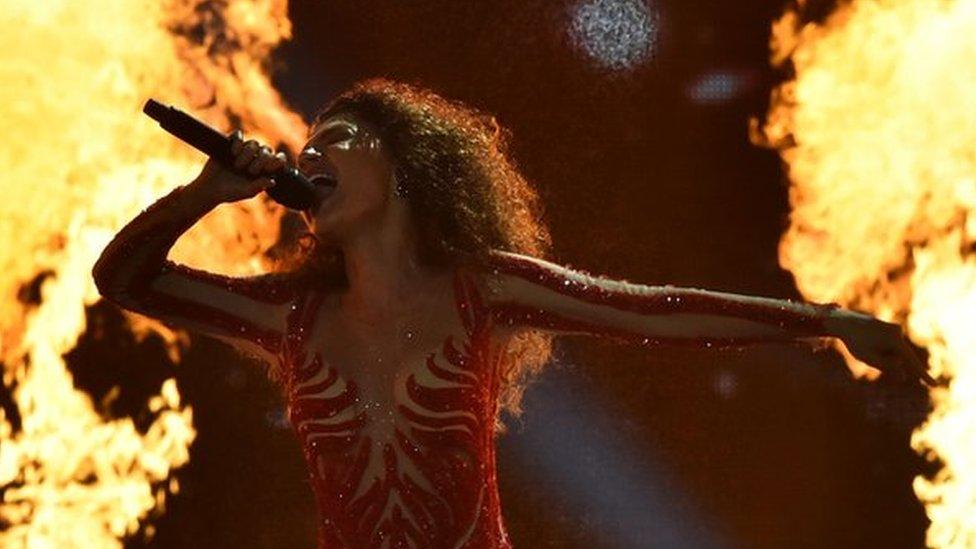Eurovision Song Contest: Ireland knocked out
- Published
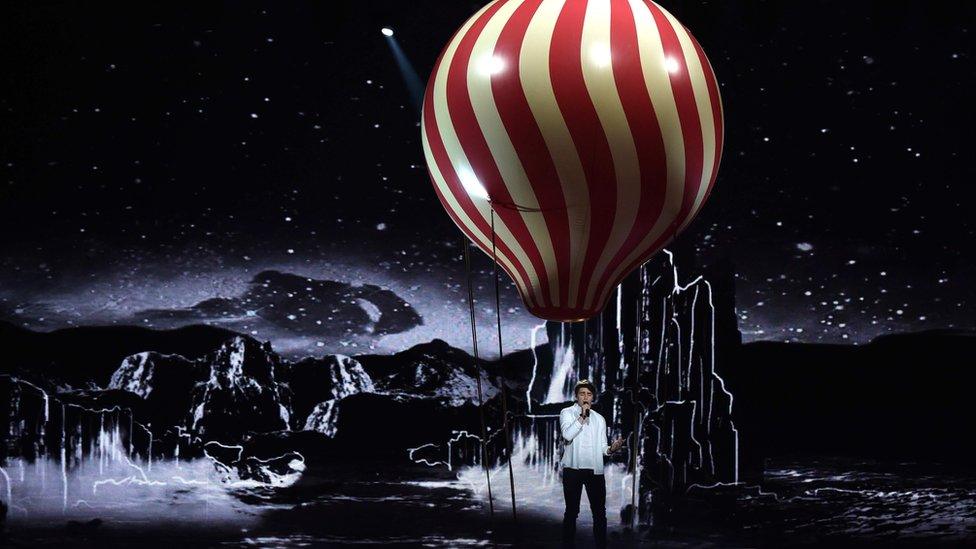
Ireland's Brendan Murray during his Eurovision performance
Ireland have failed to qualify for the Eurovision Song Contest for the fourth year running after getting insufficient votes at the semi-final stage.
Galway-born Brendan Murray, 20, had a hot-air balloon with him on stage in Kiev, but it was not enough to lift him into the all-important top 10.
Bulgaria's Kristian Kostov progressed to Saturday's grand final, along with acts from nine other countries.
Kostov, 17, is the youngest singer this year and is third favourite to win.
Austria, Israel and the Netherlands were among the other countries who saw their representatives remain in the competition.
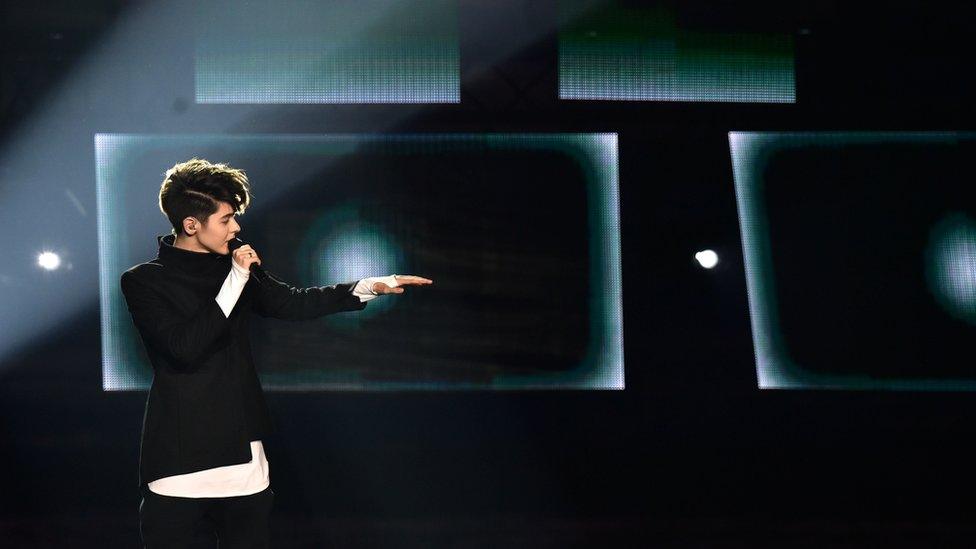
Kristian Kostov, from Bulgaria, will be in the final
Israel will be the first country to perform on Saturday, while Poland has been given the dreaded second slot in the official running order, external.
The slot is considered unlucky because no song performed second in the final has ever gone on to win.

Successful semi-finalists
Austria: Running On Air by Nathan Trent
Belarus: Story of My Life by Naviband
Bulgaria: Beautiful Mess by Kristian Kostov
Croatia: My Friend by Jacques Houdek
Denmark: Where I Am by Anja
Hungary: Origo by Joci Papai
Israel: I Feel Alive by IMRI
The Netherlands: Lights and Shadows by OG3NE
Norway: Grab The Moment by JOWST
Romania: Yodel It! by Ilinka ft. Alex Florea

Ireland have more Eurovision wins - seven - than any other country but have not won the competition since 1996.
They last made it to the final in 2013, when they finished in last place.
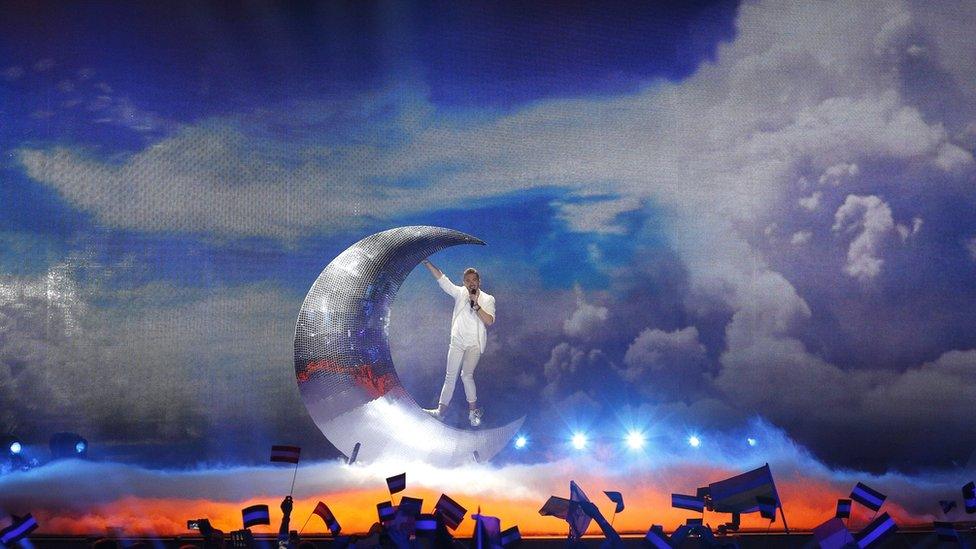
Nathan Trent will sing for Austria on Saturday
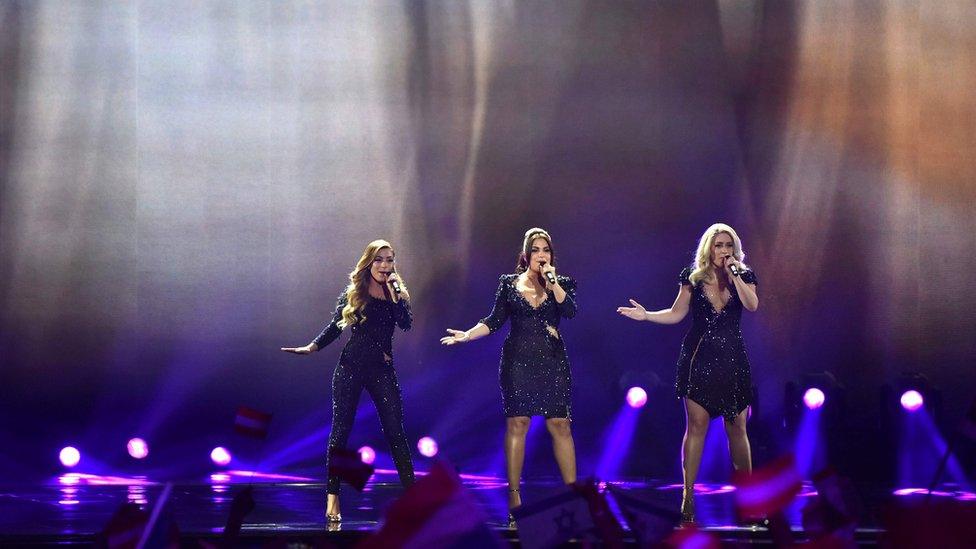
OG3NE, from the Netherlands, also progressed to the final
The fates of the 18 countries involved on Thursday were decided by a combination of votes from national juries and viewers.
The 10 successful countries will be joined in the final by the 10 countries, among them Australia, that got the most votes at the first semi-final on Tuesday.
An additional six countries, among them the United Kingdom and host nation Ukraine, will also take part in Saturday's event.
The UK's hopes this year rest on Welsh singer Lucie Jones, who will be the 18th competing act to perform in the final.

Eliminated semi-finalists
Estonia: Verona by Koit Toome & Laura
FYR Macedonia: Dance Alone by Jana Burceska
Ireland: Dying To Try by Brendan Murray
Lithuania: Rain of Revolution by Fusedmarc
Malta: Breathlessly by Claudia Faniello
San Marino: Spirit of the Night by Valentina Monetta and Jimmie Wilson
Serbia: In Too Deep by Tijana Bogicevic
Switzerland: Apollo by Timebelle

Singer Jana Burceska from the Former Yugoslav Republic of Macedonia was another act sent home at the end of the semi-final, broadcast in the UK on BBC Four.
Yet the pregnant 23-year-old did have something to celebrate after receiving a marriage proposal from her boyfriend live on air.
Sammarinese performer Valentina Monetta also exited the competition after representing San Marino for the fourth time at the contest.
Russian singer Julia Samoilova had been due to compete on Thursday but was barred from attending by Ukraine, prompting Russia to withdraw from the competition.
Ukraine refused to allow Samoilova to perform because she made a 2015 visit to Crimea, the peninsula seized by Russia the previous year.
The diplomatic row followed Ukraine's shock victory at last year's contest with a song about Stalin's deportation of Crimea's Tatar population.
The Eurovision Song Contest final will be broadcast on BBC One on Saturday from 20:00 BST.

Follow us on Facebook, external, on Twitter @BBCNewsEnts, external, or on Instagram at bbcnewsents, external. If you have a story suggestion email entertainment.news@bbc.co.uk, external.


- Published12 May 2017
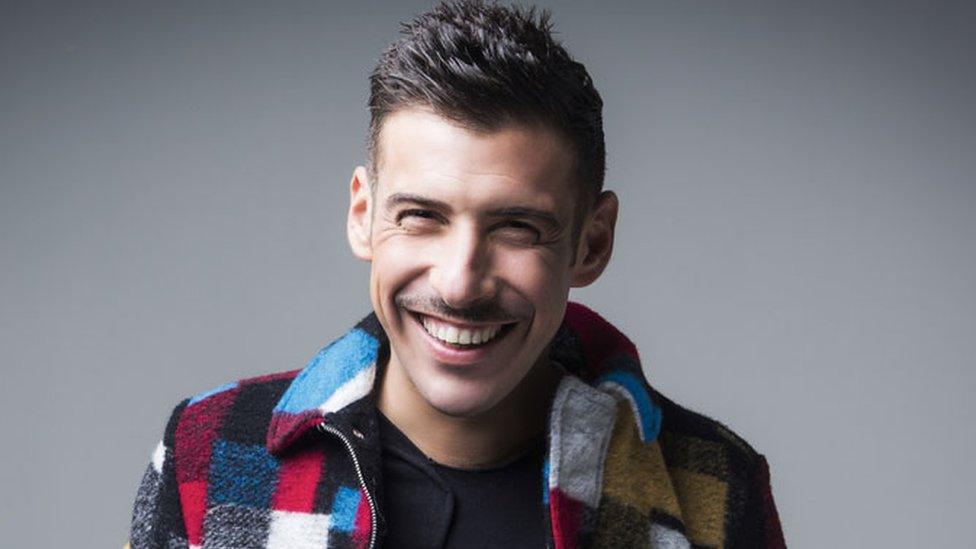
- Published10 May 2017
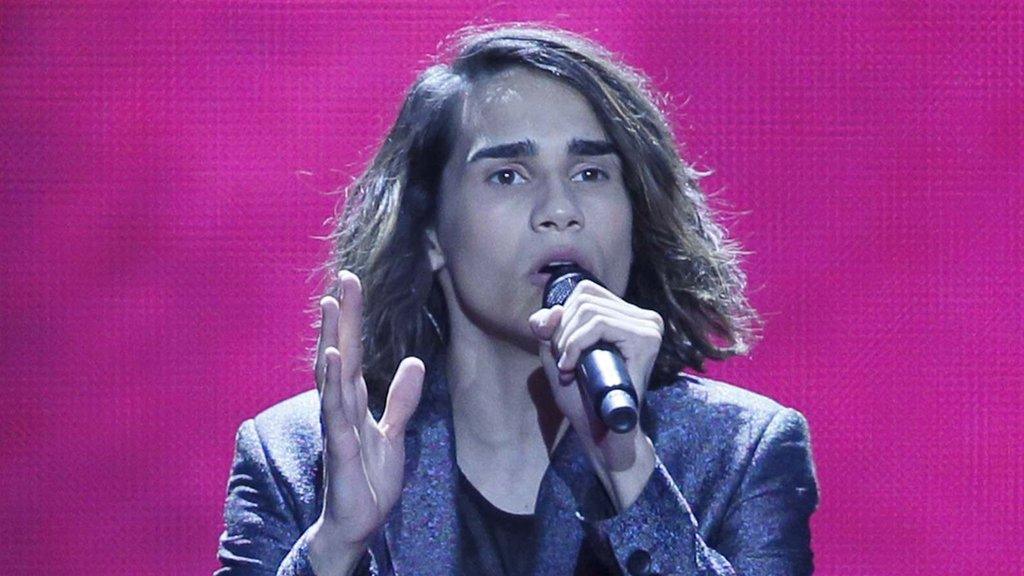
- Published9 May 2017
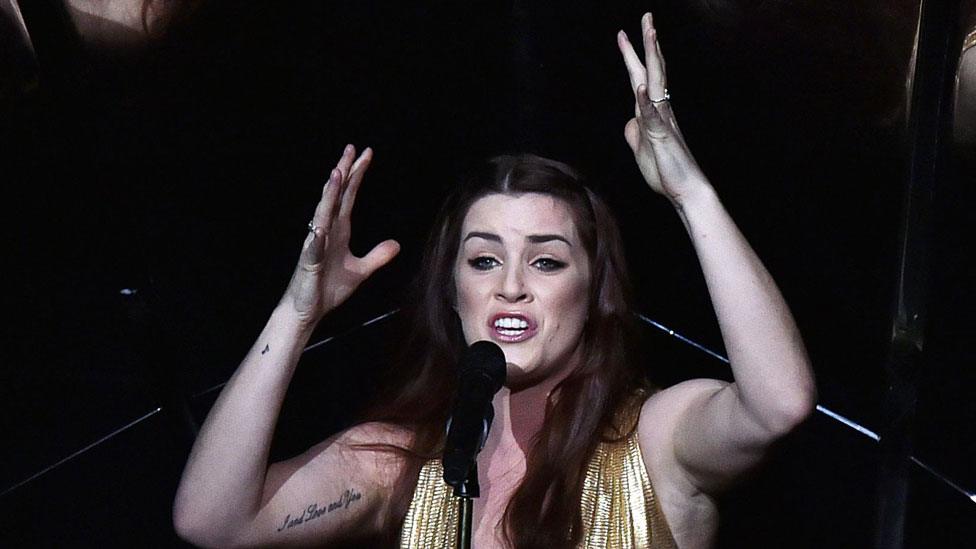
- Published9 May 2017
